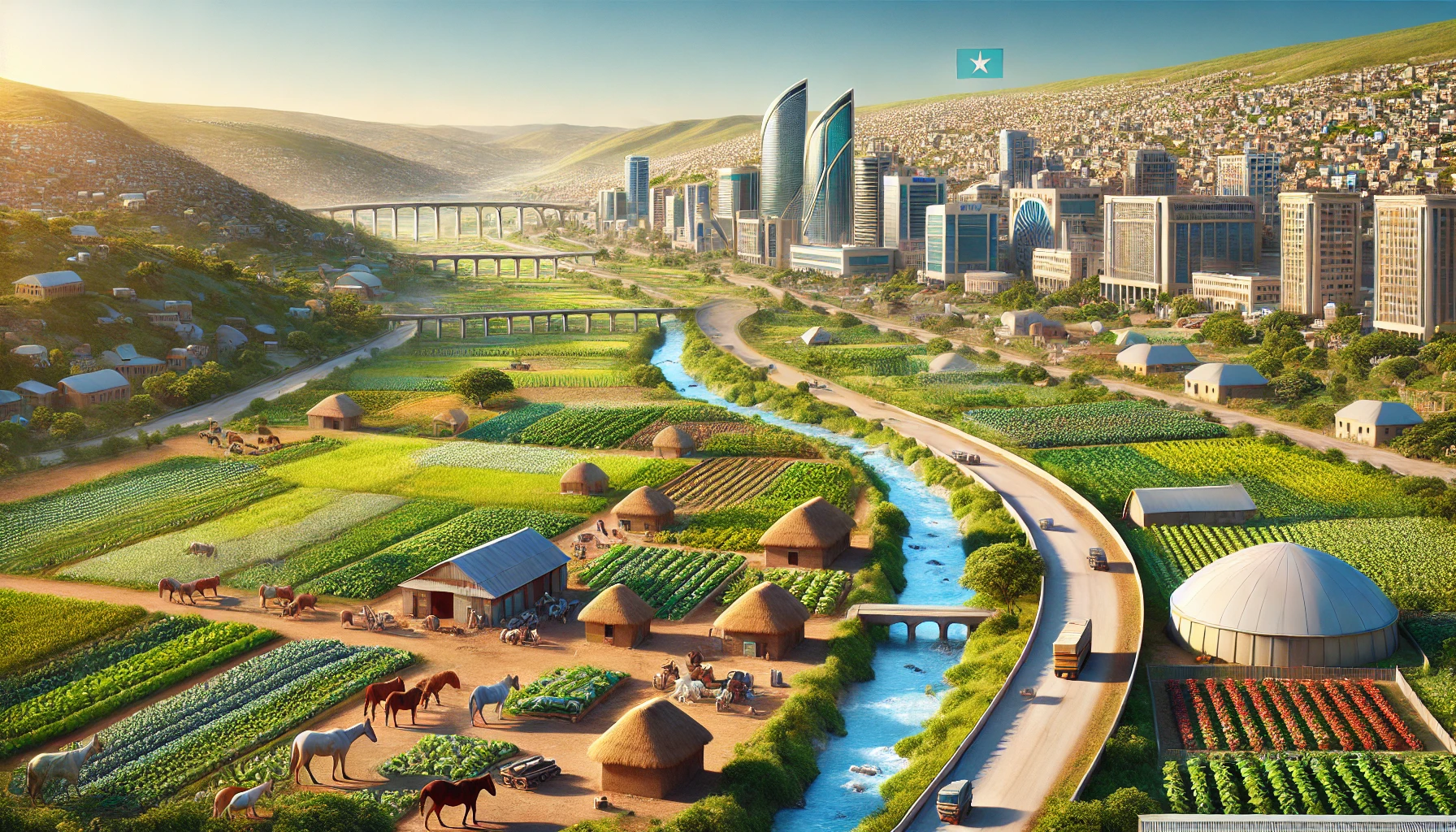Somalia's Economic Recovery: Overcoming Climate Challenges and Achieving Growth
Somalia has made significant strides towards economic recovery with a 3.1% GDP growth in 2023, supported by improved agricultural production and favorable weather. However, challenges remain, including high reliance on imports, climate change impacts, and the need for continued fiscal discipline and resilience investments.

- Country:
- Somalia
The Somalia Economic Update for June 2024, presented by the World Bank, highlights significant economic and climatic challenges and developments in the country. Somalia has made strides towards economic recovery, achieving a 3.1% GDP growth in 2023, up from 2.4% in 2022. This improvement is largely attributed to favorable rains that boosted agricultural production, leading to reduced food insecurity and increased private consumption. The rebound in livestock exports further supported this growth. Despite these gains, Somalia remains heavily reliant on imports, which continue to drag on growth.
Economic Growth on the Rise
Inflationary pressures in Somalia have eased, averaging 6.1% in 2023 compared to 6.8% in 2022, thanks to better agricultural performance and declining global commodity prices. However, inflation remains above pre-2022 levels due to high local fuel and energy prices, rising house rents, and transportation costs. The country’s de facto dollarization has helped maintain price stability during these fluctuating times. Fiscal performance has also seen improvement, with the Federal Government of Somalia (FGS) maintaining broad-based fiscal stability and achieving a small budget surplus in 2023. Domestic revenues have increased to 2.8% of GDP, but this is still insufficient to cover the country's significant development needs. External grants continue to finance a large portion of public expenditures, particularly in social services and security. The FGS’s capacity to finance investments that could reduce poverty or spur economic growth remains limited.
Historic Debt Relief and Fiscal Stability
A historic milestone was achieved in December 2023 when Somalia received full and irrevocable debt relief of 4.5 billion dollars, significantly reducing the country’s external debt to 5.4% of GDP from 64% in 2018. This debt relief opens up opportunities for Somalia to finance development priorities and expand basic service delivery. However, the government must continue strengthening macroeconomic institutions and maintaining fiscal discipline to avoid future debt distress. Somalia has also made notable progress in regional integration, being admitted into the East Africa Community (EAC) and working towards joining the World Trade Organization (WTO). These efforts are expected to enhance trade integration, economic expansion, diversification, and job creation.
Future Growth and Risks
Looking ahead, Somalia's economic growth is projected to continue, with real GDP growth expected to reach 3.7% in 2024 and 3.9% in 2025. This positive outlook is supported by continued household demand, domestic investment, government spending, and favorable weather conditions. However, significant risks remain, including global economic shocks, climate-related shocks, and security threats. Weather volatility, particularly extreme climate events like droughts and floods, poses a perennial risk, potentially muting agricultural recovery and overall growth.
Addressing Climate Change Challenges
The report emphasizes the urgent need for Somalia to address climate change challenges to sustain economic growth. The country has witnessed severe climate disasters, including prolonged droughts and severe flooding, which have exacerbated social and economic vulnerabilities. Climate-induced displacements and conflicts over scarce natural resources have heightened fragility, particularly among rural populations, women, and youth. To enhance climate resilience, Somalia needs to invest in disaster risk management, social protection, and resilient rural livelihood systems. Climate-smart urban planning, resilient infrastructure, and investments in public health and human capital are also crucial. Addressing the nexus between climate stressors, social fragility, and conflict through inclusive planning and peacebuilding efforts will be key to ensuring a more secure and sustainable future for Somalia.
Strengthening Financial Sector Reforms
Improved weather and easing global commodity prices have dampened inflationary pressures in Somalia. Inflationary pressures eased in 2023, supported by better agriculture performance and declining global commodity prices. Overall inflation, however, remained above trend, despite declining, averaging 6.1% in 2023 and 6.8% in 2022, compared with 4.6% in 2021. Favorable rains in 2023 boosted agricultural production, easing local staple food prices. Food inflation averaged just 0.7% in 2023, compared with 13.9% in 2022. The easing of global commodity prices led to lower fuel and energy prices locally, though these remain high compared with pre-2022 levels, contributing to stickier overall inflation. This sticky inflation is also a result of increasing house rents, transportation, telecommunication services, mainly from telephone and telefax equipment price increases, and clothing.
The Central Bank of Somalia (CBS) has continued to develop its regulatory capacity to ensure stable financial sector growth. Financial intermediation remains nascent, with only less than 9% of the population having a bank account. However, mobile money is utilized by about 97% of households, where transactions are in US dollars, as the economy is de facto dollarized. The CBS is mainly focused on licensing, supervising, and regulating financial institutions dominated by money transfer bureaus (MTBs), as well as improving transparency in financial transactions. The CBS has so far licensed all 14 commercial banks, 12 MTBs, and three mobile money operators (MMOs) to operate in Somalia. However, the current law restricts the CBS to the formal supervision and regulation of banks, with a revised Financial Institutional Law currently being approved to expand CBS oversight to the entire financial sector. The authorities’ efforts in anti-money laundering and combating the financing of terrorism (AML/CFT) are being supported through the implementation of an AML/CFT Law, with the support of the CBS and the Financial Reporting Center. In addition, in March 2023, a Targeted Financial Sanctions Law was enacted, which is expected to further address money laundering/financing of terrorism risks. Similarly, the issuance of digital identification in September 2023, and the development of credit and collateral registries in the coming years, are expected to support the ability of financial institutions to assess and mitigate risks and promote financial inclusion among households and firms.
- FIRST PUBLISHED IN:
- Devdiscourse










